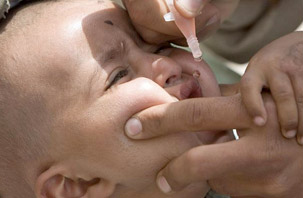- Added 1 Mar 2013
University of Yaounde I
Experience
Experienced University site with excellent laboratory facilities and recent accreditation.
Socio-demographic and malaria epidemiological and entomological baseline surveys have been conducted and site is ready for any malaria drug/vaccine trial. There has also been sufficient staff training to accommodate such studies both in the field and laboratory.
ZIKA UPDATE:
We have recently identified foci of the aedes mosquito, vector for transmission of arboviruses including zika. We want to continue by performing surveys of human infection with common arboviruses including zika.
Research interests
Partner laboratories affiliated to the site include the following:
i. The Niété hospital laboratory: expertise in blood specimen collection, blood smear preparation and microscopy of malaria and other haemoparasites, Rapid diagnostic tests for malaria, ABO blood grouping, and Packed cell volume (PCV);
ii. The immunology and Molecular biology laboratory of the biotechnology Center of the University of Yaounde I: Further (second) examination and confirmation of malaria parasitaemia by microscopy, complex laboratory analyses for immune studies such as ELISA, molecular studies such as DNA extraction and PCR genotyping of the parasites and mutations in drug resistant parasites;
iii. The laboratory for vector biology and control at the Biotechnology Center of the University of Yaounde I: Also the National reference laboratory for vector control. Vector identification and incrimination, PCR, ELISA to check for mosquito blood meal source and infectivity.
iv. Parasitology Laboratory, IMPM, MINRESI: Further examination (third) examination of microscopy slides,
The biotechnology centre has also partnered with Global Health Trials to provide free skills sharing clinical research workshops to staff.
Disease areas
- Cholera
- Dengue
- HIV
- Influenza
- Malaria
- Other
- TB
- Yellow Fever
- Zika
Other information
Health infrastructure/malaria referral system:
HEVECAM belongs to the Kribi health district. In each one of the 15 camps, there is a health center (dispensary) with 2-3 trained nurses (2 health centers for large camps). Dispensaries are under the supervision of a nurse in charge. At the central level, there is a reference hospital (>140 beds), including the following departments: internal medicine, surgery, pediatrics, maternity, radiology, and clinical biology. There are 3 permanent medical doctors (MD), assisted by 3-4 residents from the Faculty of Medicine and Biomedical sciences in the University of Yaounde I. Usually, patient care takes place at the level of health centers, and serious cases are referred to the hospital. Health care is free at the level of dispensaries. However, at the hospital, patients pay for 20% of the care.
The population
The population is very stable as it is made up mostly of company workers and their dependents living in camps under strict demographic surveillance. The only mobility (less than5%) consists of children going to bordering school and returning home on visits or vacation. Within the zone, people move freely from one camp to another. Workers have a registration number and a list of their dependents is available at the administration offices and at the hospital. Access into and out of the plantations is strictly guarded.
Contact this site
To: Rose Leke, Professor at University of Yaounde I
Please Login to contact a site.